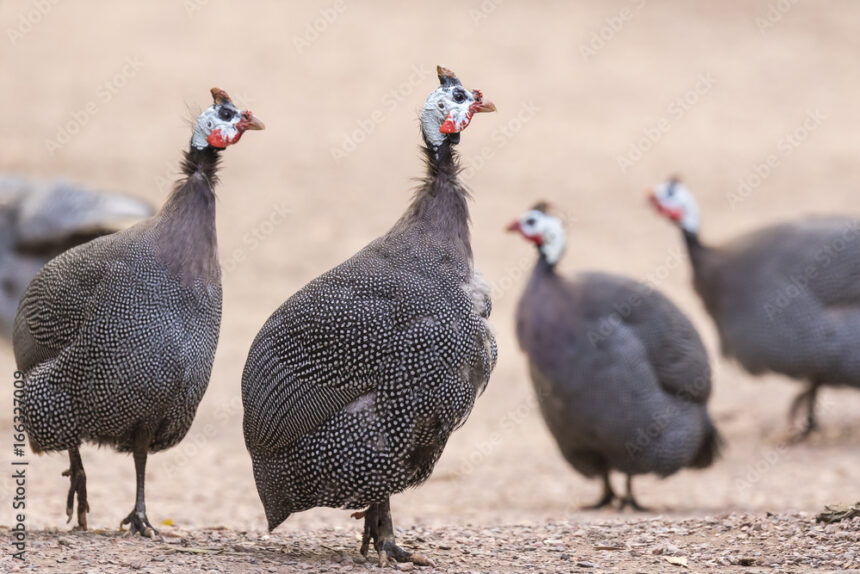When engaging in guinea fowl farming in South Africa or any other region, it’s important to be aware of potential infections and diseases that can affect these birds. Here are some common ones to watch out for:
- Newcastle Disease:
Newcastle disease is a highly contagious viral infection that affects various bird species, including guinea fowl. It can cause respiratory distress, nervous system disorders, and high mortality rates. Vaccination is available for prevention, and maintaining biosecurity measures is crucial. - Avian Influenza:
Avian influenza, or bird flu, is a viral infection that can affect poultry, including guinea fowl. It can cause severe respiratory signs, decreased egg production, and high mortality rates. Strict biosecurity measures, including control of wild bird contact and regular surveillance, are essential to prevent its spread. - Fowl Cholera:
Fowl cholera, caused by the bacterium Pasteurella multocida, is a highly contagious disease that can affect guinea fowl. It can lead to sudden deaths, swollen joints, respiratory symptoms, and decreased egg production. Proper sanitation, hygiene, and isolation of sick birds are crucial preventive measures. - Coccidiosis:
Coccidiosis is a parasitic infection caused by protozoan parasites of the genus Eimeria. It affects the digestive system of guinea fowl and can lead to diarrhea, weight loss, and reduced growth rates. Maintaining good hygiene, regular disinfection of housing areas, and providing clean drinking water are important preventive measures. - Infectious Coryza:
Infectious coryza is a bacterial disease caused by Avibacterium paragallinarum. It primarily affects the respiratory system, leading to nasal discharge, swelling of the face, and reduced egg production. Vaccination, quarantine measures for new birds, and maintaining proper ventilation can help prevent its spread. - Ectoparasites:
Guinea fowl can be affected by external parasites such as mites, lice, and ticks. These parasites can cause feather loss, skin irritation, anemia, and reduced productivity. Regular inspection, dust baths, and use of appropriate treatments can help control these parasites.
It’s important to work closely with a veterinarian experienced in poultry health to establish a comprehensive health management plan for your guinea fowl farm. They can provide guidance on vaccination schedules, diagnostics, and appropriate treatment options to maintain the health and productivity of your flock.
Join 'Farmers Mag' WhatsApp Channel
Get the latest Farming news and tips delivered straight to your WhatsApp
CLICK HERE TO JOIN






